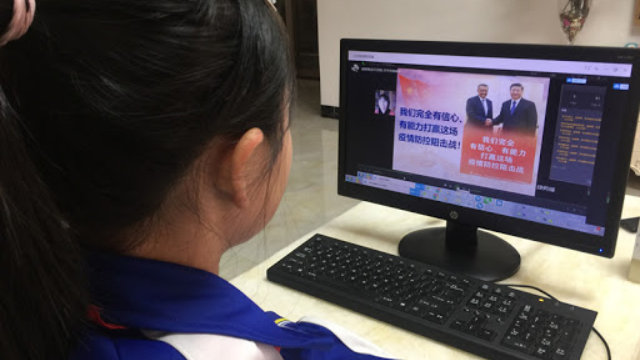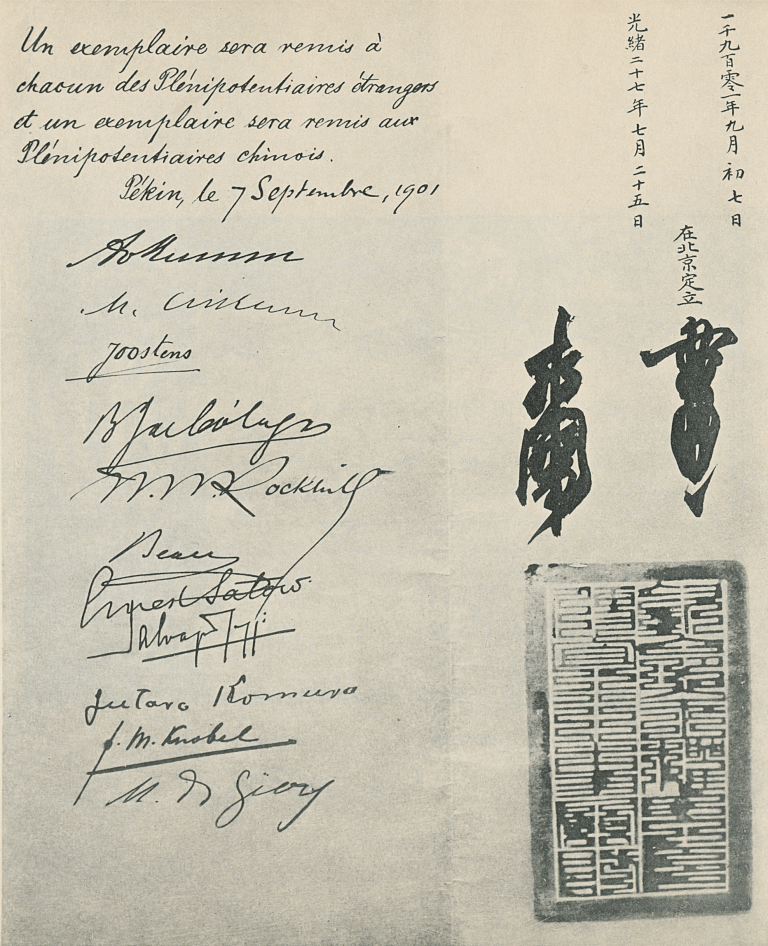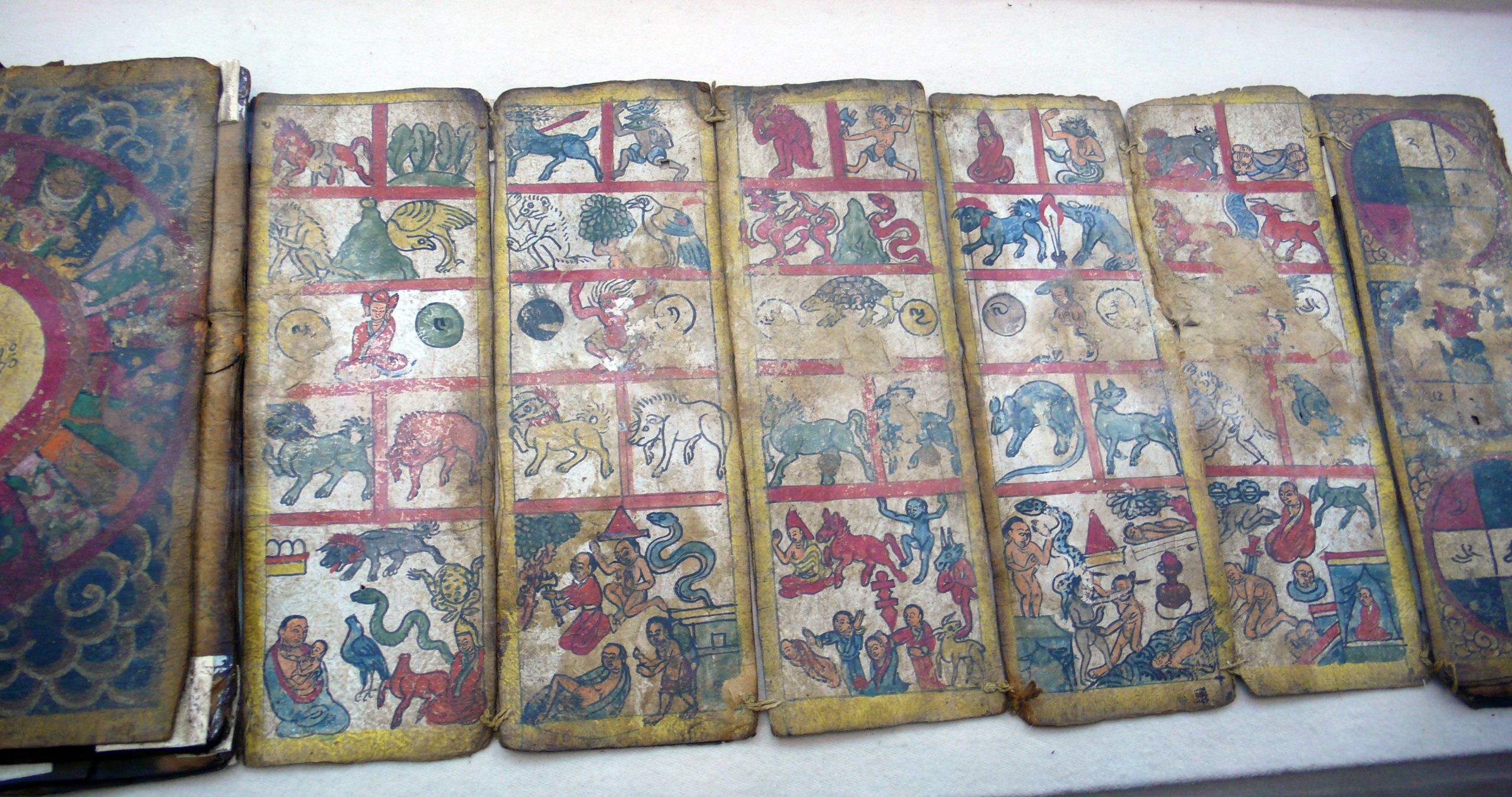After the Boxer War, China had to pay an indemnity for 39 years to the foreign powers that defeated the rebels. Now, the CCP claims that international requests for virus-related damages are “a new Boxer Indemnity.”
by Ye Jiajia
How the CCP manipulates nationalism
COVID-19 has turned into a worldwide pandemic due to the CCP’s concealment of information on the epidemic. More and more political bodies and civil society representatives in different countries are taking action to claim compensation for trillions of dollars from China. 2020 happens to be a Chinese gengzi year (庚子年), which ranks thirty-seven in the traditional sixty-year lunar calendar cycle and occurs every sixty years. It is a year when, it is said, history repeats itself. The Global Times, one of the CCP’s mouthpiece media outlets, republished on April 7 an article, “Who Is Scheming for another Boxer Indemnity?”, by Li Haidong, a professor from China Foreign Affairs University. To incite nationalist feelings, article suggests that various countries’ claims for compensation are equivalent to the indemnity China had to pay after the Boxer War of 1900.
In April, a middle school in Heze city in the eastern province of Shandong again compared the Western position on the COVID-19 crisis and the Boxer War in an online ideological and political class with the theme of “state security education.”
“The teacher told us that Western countries, led by the United States, joined to call for apology and indemnity from China, a student in the school told Bitter Winter. The imperialism has not given up its wild ambition to subjugate [our country]. Now, it is repeating the aggressive acts that it did with the Boxer Protocol and the Boxer Indemnity.” “The teacher added that Western countries led by the U.S. were slandering China and shifting the blame for the crisis to the Chinese people,” the student said.

The Boxer War and the Boxer Indemnity
The Boxer War is largely forgotten in the West, but is still a living and painful memory in China. “Boxers” was a nickname for the members of the Militia United in Righteousness, a xenophobic and anti-Christian movement that was born in Shandong in the last decade of the 19th century, and extended to other areas of China. In 1897, they started attacking churches and killing both foreign missionaries and Chinese Christians. By the end of 1900, more than 30,000 Christians had been killed by the Boxers.
Protests by the Christian churches led to the diplomatic and then to the military intervention of Western powers, united in the Eight-Nation Alliance, including the U.S., UK, Russia, Germany, the Austro-Hungarian Empire, France, Japan, and Italy. Japan participated because Boxers in Beijing had attacked its embassy, as they did with other foreign embassies. The Netherlands, Belgium, and Spain were not part of the Alliance, but their troops also became involved in the conflict. Empress Dowager Cixi (1835– 1908) was initially hostile to the Boxers, but later changed her mind and in 1900 supported the movement and declared war to all foreign powers.
Within the Qing government of Empress Cixi, many believed that the Boxers were protected by the spirits and invulnerable. Cixi praised the Boxers as “the imperial government’s loyal children,” and believed they would be able to assert Chinese autonomy from all kind of Western pressures. On her order, the Boxers rose to “support the Qing, annihilate the West,” which became the movement’s main slogan. “Annihilating the West” meant to annihilate everything related to “Western” influence and culture. The Boxers killed Western men, Western women, and Western children, claiming they were authorized to do this by the Qing government. Chinese who had converted to “Western” religions were not spared from death either. Western goods and properties were all destroyed. The Boxers killed foreign missionaries, foreign engineers, Chinese Christians, and their families. They burned churches, destroyed railways, burned railway stations, cut wires, removed electric poles, destroyed bridges, attacked schools, smashed hospitals, destroyed post offices and machines, sank ships, burned Western pharmacies, robbed banks, and attacked newspaper offices. The Boxers raided dwellings, killed people, and set fire to entire villages. For a time, Beijing area and other parts of China were shrouded in “red terror” (as the Boxers had red scarves on their heads and red belts around their waists).
After a war that made more than 100,000 victims, the foreign powers defeated China and the Boxers. Both sides in the war committed atrocities, and the massive executions by foreign troops of Chinese civilians believed to be Boxers is still a painful memory in China.
On September 7, 1901, Empress Cixi agreed to a peace treaty known as the Boxer Protocol. China had to accept the presence of foreign troops on his soil, the execution of several officers regarded as responsible for the rebellion, and the payment of a “Boxer Indemnity.” The latter was to be paid to the foreign powers that had participated in the war in installments in 39 years, and amounted at $333 million of that time, a sum some historians believe would be equivalent to $61 billion today. It was justified as compensation for the victims among foreign expatriates and merchants, and Christians and believers from foreign and Chinese religious groups, as well as for the huge expenses foreign nations went to in sending their troops.

In Chinese textbooks, the Boxer Protocol is described as an “unequal treaty,” which humiliated the nation and forfeited its sovereignty. The Boxer Indemnity is described as a mark of national shame. This incident has always been used by the CCP as an important tool of “patriotic” education, to stir up nationalist hatred against Western countries.
Extreme nationalism revived
Now, through continuous propaganda of nationalism, the CCP has successfully turned the coronavirus crisis into a patriotic battle targeting Western countries. Chinese writer Fang Fang recently published her Wuhan Diary, a daily chronicle of life and death she wrote in her home city during the coronavirus epidemic. She incurred harsh condemnation by Chinese nationalists, who rebuked her for “giving a knife to Western anti-China forces,” and for being a “traitor” defaming the heroic image of Wuhan.
Amid the pandemic in Western countries, some Chinese had gone so far as to raise a banner to celebrate the outbreak in the United States. Even Chinese netizens have commented that this is a pernicious consequence resulting from the CCP’s hate education.
The consequences of an international pandemic caused by the CCP have been converted by the CCP into a patriotic movement asking the Chinese to love China by opposing the West. The CCP propaganda and indoctrination agencies have repeated time and again that the West is the enemy of China, mentioning the Boxer Indemnity as evidence.
Nationalist education and indoctrination stimulate hatred
Indoctrination, incitement, and use of the sentiment of nationalism have always been the magic weapons for the CCP government to solve crises.
After the Tiananmen Square Incident, the U.S. and other Western countries declared sanctions on the CCP regime. However, the CCP then described these sanctions as evidence that “the Western countries have not given up their wild ambition to subjugate us [our country],” just as it happened with the Boxer Indemnity.
This was repeated with the Sino-US trade war. The CCP proclaimed that “the U.S. anti-China forces have not given up their wild ambition to subjugate China,” “the U.S. is jealous of China’s rise,” “China’s high prices and high housing prices are caused by the U.S. currency war,” “the U.S.’ use of the trade war to block China aims to stop China from becoming powerful,” and so on.
Regularly, the CCP uses nationalism to solve the domestic problems caused by its own autocracy. During the Hong Kong pro-democracy protest, the CCP once again blamed Hongkongers for being unpatriotic and separatist. The democratic demands of millions of Hongkongers were attributed to the interference of ill-intentioned Western forces. Some Chinese students posted violent remarks, asking China to “use tanks to crush Hongkongers.”
The citizen journalist Li Zehua, who was arrested for filming the epidemic situation in Wuhan, compared the Chinese youth to the leading character of the classic movie The Truman Show, who lived in lies all his life. And many commentators, such as Professor Xu Yunren, who is conducting a long-term research on totalitarianism, used the format of this movie to analyze the social political environment in China.
Mr. Liu Xiaobo, the late human rights activist and renowned writer, analyzed in an article the CCP’s autocratic measures: control over public opinion and indoctrination with hatred. The CCP frequently uses nationalism to plant hatred, shame, and both an inferiority and a superiority complex in the minds of the Chinese, spreading lies and prejudices against Western countries. The Boxer War, a complicated historical event, is reduced to a black-and-white opposition between inherently “good” Chinese and “bad” foreigners, and proposed as a paradigm to interpret the present crisis.
Source: Bitter Winter












